

Assumpta Weekly Magazine Presents:
“The Lawyer” with Frema Adumyame, One of Ghana’s Best Broadcast Journalists. Special Edition: Journalism of Neglected Topics – Premiering Monday, October 28, 2024
Available at assumptagh.live.
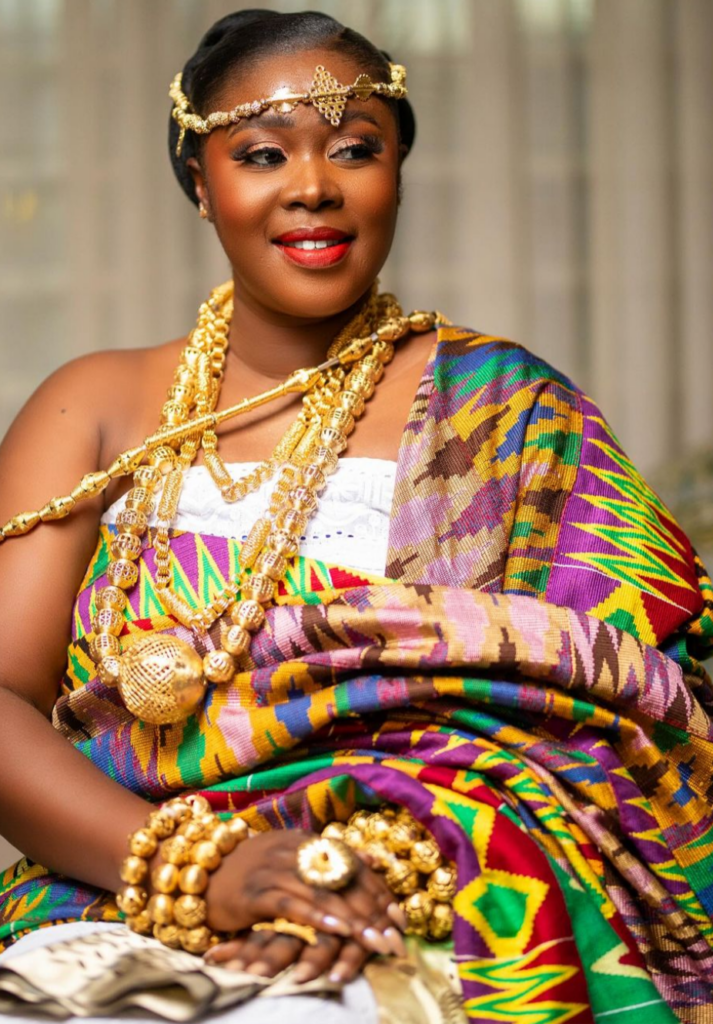
Frema-Adunyame
African Stream: International News Highlights
In our latest issue, we dive into critical conversations on justice, legacy, and the ongoing fight against systemic discrimination. Featuring the exclusive insight of Vice President Kamala Harris, we explore how neglected issues impact Black communities around the world.
Vice President Kamala Harris on the Sandwich Generation : “There are so many people in our country who fall in the Sandwich Generation. They’re taking care of their kids and they’re taking care of their ageing parents. I am proposing that we allow Medicare to cover
in-home health care.”

https://www.instagram.com/smyrna__home?igsh=MTFjM2l3bWNzNWIzZQ==
“Transform your home into a haven with Smyrna Home! Discover beautifully crafted, elegant home decor pieces that blend style and comfort, perfect for any space. Redefine your living experience—visit Smyrna Home today!”

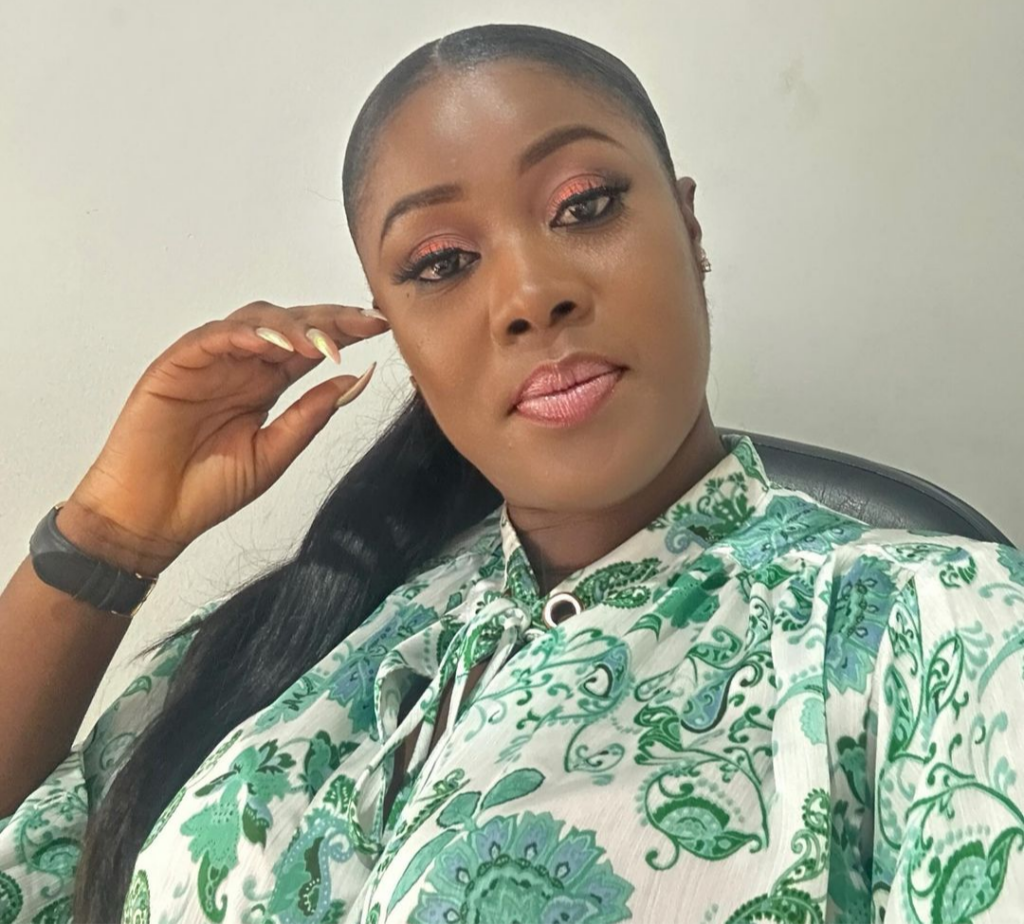
Special Feature Article: “There Is Only One Truth!”
Was it because of his role in opposing the deep-rooted prejudice against black women and black people?p
(5) Was it because of his role in opposing the deep-rooted prejudice against black women and black people ? Yes, many argue that Martin Luther King Jr. was “killed by institutional racism.” While James
Earl Ray was the individual who assassinated King, the broader societal forces of institutional racism played a significant role in creating the hostile environment that led to his death.

https://www.instagram.com/laurenhautecouture?igsh=MWxzNXN1Ym5nZ3o3Mg==
“Elevate your wardrobe with LaurenHautecouture! Discover exquisite, hand-crafted designs that blend timeless elegance with modern style. From luxurious fabrics to intricate details, each piece is tailored to perfection. Step into sophistication—choose LaurenHautecouture today!”
Institutional racism refers to the systemic policies, laws, and practices that perpetuate racial inequality and discrimination against marginalised groups, particularly Black people. King was a prominent figure challenging these very systems — advocating for civil rights,
economic justice, and an end to racial segregation.
His efforts to dismantle these ingrained
structures made him a target of not just individual racists but also of a system that resisted change and equality for African Americans. Thus, while the act was committed by a single person, it is true that the environment of
institutional racism was a significant factor in why King was killed.
(6) Who Was Martin Luther King Jr.?
Martin Luther King Jr. (January 15, 1929 – April 4, 1968) was a Baptist minister and civil rights leader, regarded as the most powerful voice in the American civil rights movement. Known for his commitment to nonviolent protest inspired by Mahatma Gandhi, King became a champion of social justice and racial equality.
(7.) What Did He Fight For?
King’s work centred on eliminating racial discrimination and segregation. He spearheaded.critical campaigns such as: Montgomery Bus Boycott (1955-1956): Led in response to Rosa Parks’ arrest, resulting in the Supreme Court ruling that segregation on public buses was unconstitutional.
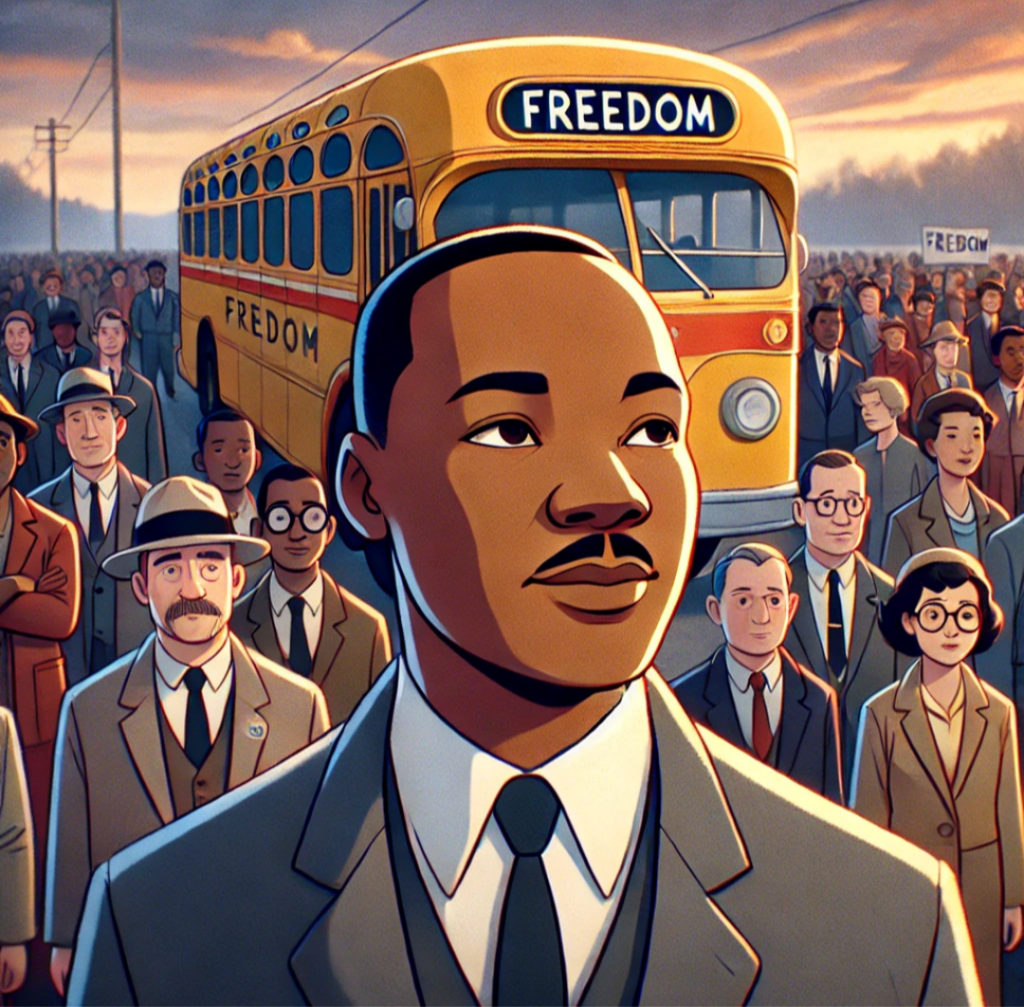
Martin Luther King Jr. leading the Montgomery Bus Boycott in 2D animation style.
Birmingham Campaign (1963): Nonviolent protests in Birmingham highlighted police brutality, revealing the violent resistance to racial integration.
March on Washington (1963): King’s “I Have a Dream” speech, envisioning a nation free of
racial judgement, became a cornerstone for civil rights. Selma to Montgomery March (1965):
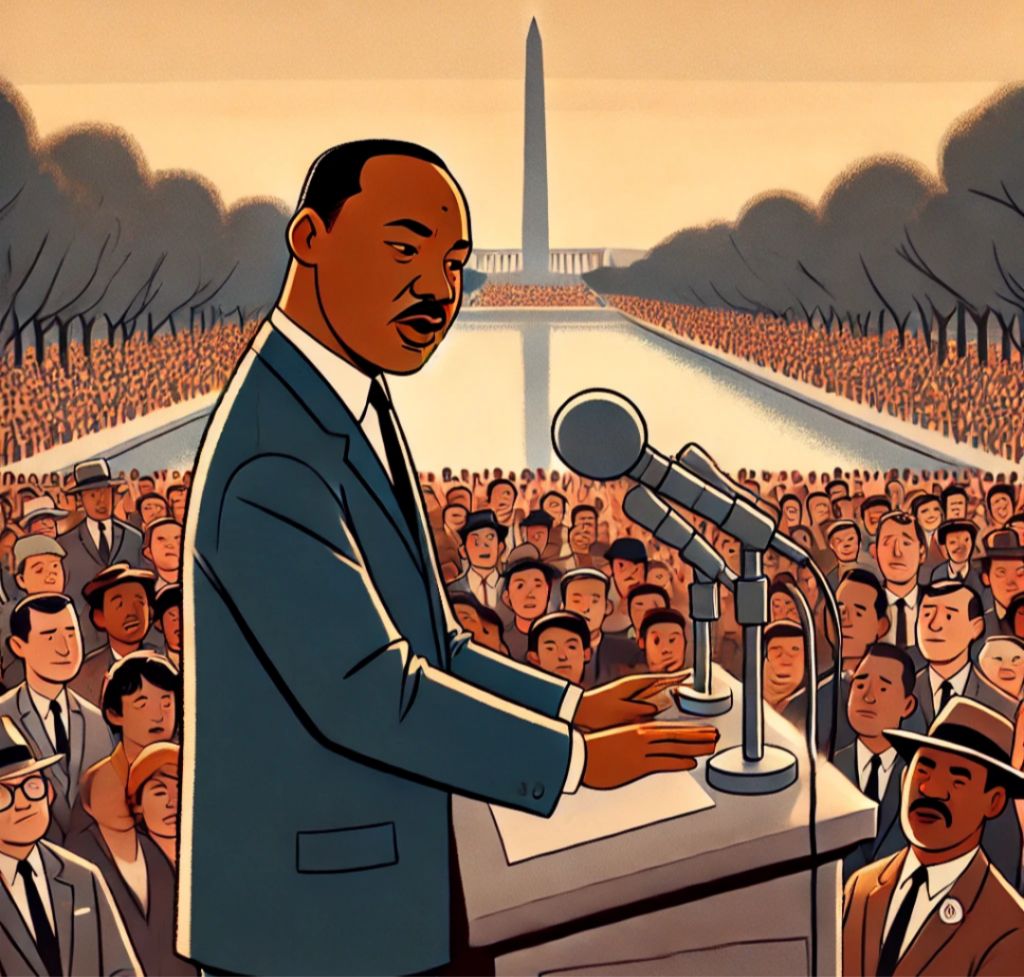
This march highlighted the suppression of Black voting
rights, leading to the Voting Rights Act of 1965.
(8.) What Did He Say and Write?
King’s words continue to shape society’s vision for justice and equality. Some of his most powerful works include:
“I Have a Dream” Speech (1963): A powerful vision of a future where all people would be Judged by character, not race.
“Letter from Birmingham Jail” (1963): King’s defence of civil disobedience and a call to confront unjust laws.
“The Other America” Speech (1967): King’s address on poverty and racial inequality, stressing the need for social justice beyond civil rights.
“Where Do We Go from Here: Chaos or Community?” (1967): This work reflected on the civil rights movement’s progress and emphasised systemic change and nonviolence.
(9) When Did He Die?
At What Age?
And by Who Killed Him?
Martin Luther King Jr. was assassinated on April 4, 1968, at age 39, on the balcony of the Lorraine Motel in Memphis, Tennessee. James Earl Ray, a white man with a criminal history, was charged with his murder. Although Ray later recanted his confession, his guilt is widely
accepted. King’s assassination was a profound loss to the movement, but his legacy endures, inspiring the continued fight for racial justice and equality worldwide.
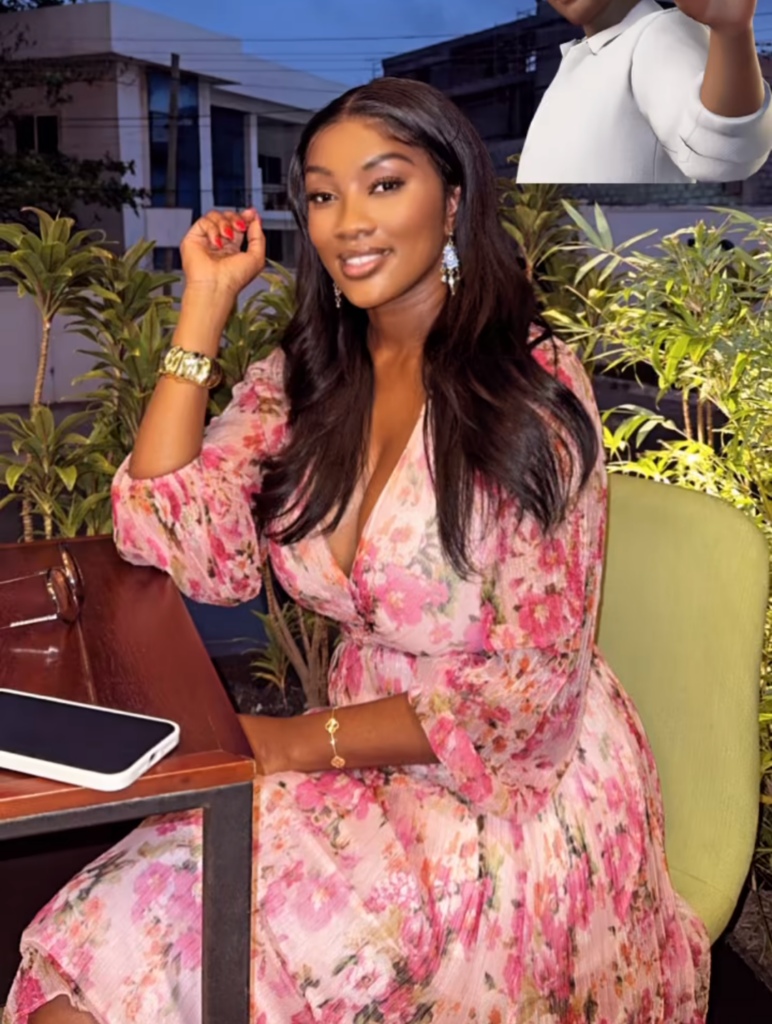
Asssumpta-Gahutu / COE-Babies and Todds-DayCare, Assumpta Newsletters and Premium Jeans. https://www.instagram.com/ag_premiumjeans?igsh=MWpsNjZ1bTFvdHNsdw==
“THERE’S ONLY, BUT ONE TRUTH” AND THAT IS JUSTICE :
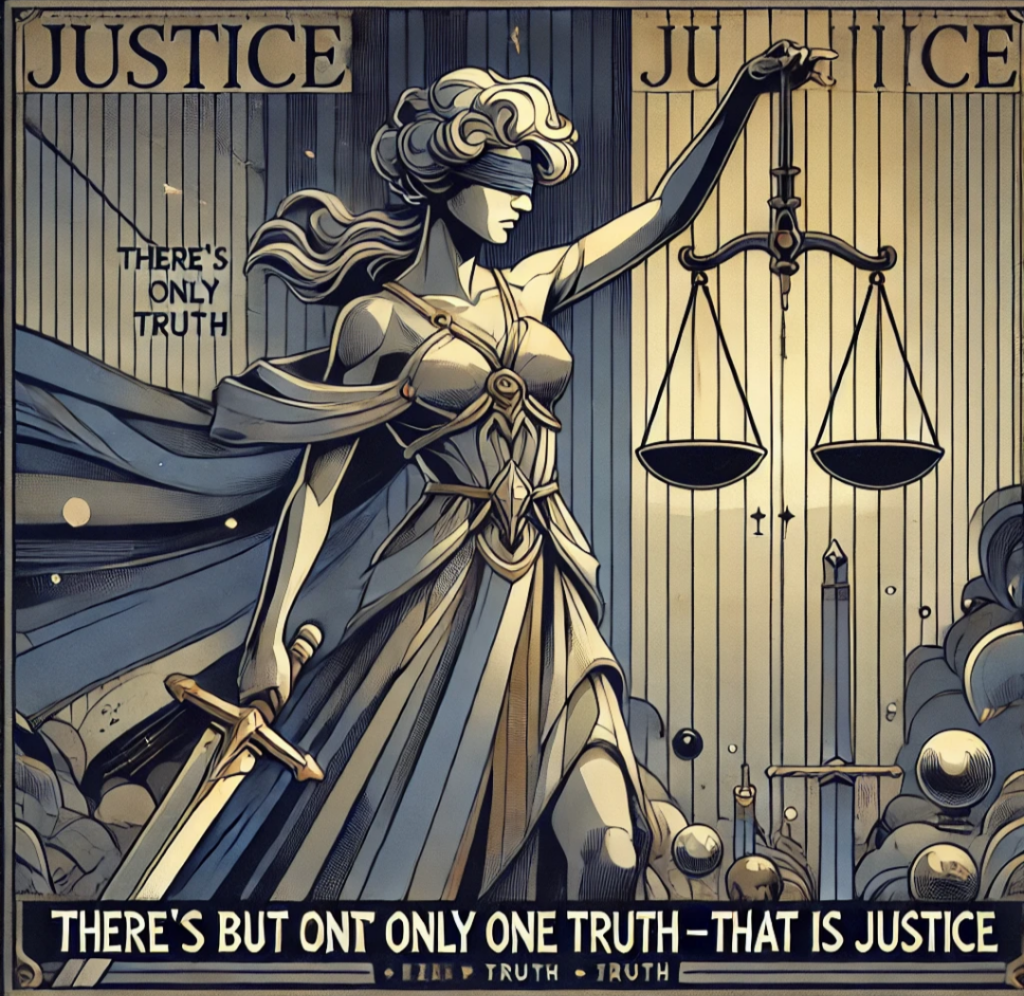
There Is Only One Truth!
Did Martin Luther King Jr. die because he opposed the deep-rooted prejudice against Black women and the Black community?.
Yes, Martin Luther King Jr. was “killed by institutional racism.” While James Earl Ray pulled the trigger, it was the broader forces of systemic racism that created the hostile environment that led to his assassination. Institutional racism includes policies, laws, and practices embedded within society that perpetuate discrimination, especially against marginalised groups.
King’s courageous leadership challenged these structures, demanding civil rights, economic justice, and the end of racial segregation. His vision confronted the societal status quo—an agenda met with violent resistance from a society resistant to equality. Martin Luther King Jr. (January 15, 1929 – April 4, 1968) was a Baptist minister and civil rights leader, regarded as the most powerful voice in the American civil rights movement. Inspired by Mahatma Gandhi’s principles of nonviolent resistance, King emerged as a champion for social justice and racial equality.
Throughout his life, he fought to eliminate discrimination and segregation, leading pivotal campaigns, including the Montgomery Bus Boycott, the Birmingham Campaign, the March on Washington, and the Selma to
Montgomery March. His unwavering stance on justice transformed American society and continues to inspire the global pursuit of equality.
King’s words and writings have left an enduring mark on society. His “I Have a Dream” speech during the March on Washington painted a hopeful vision where people are judged not by race, but by character.
His “Letter from Birmingham Jail” defended civil disobedience, asserting a moral obligation to oppose unjust laws.
His work, even in the face of imprisonment, embodied his belief that there is only one truth and one justice—a belief he carried until his assassination in 1968, at the age of 39, on the balcony of the Lorraine Motel in Memphis, Tennessee.
In this issue, Assumpta Weekly Magazine presents a tribute to Martin Luther King Jr, exploring his life, legacy, and the lasting impact of his pursuit of justice. Join us under the banner of truth as we honour King’s dream for a peaceful, equal society and his conviction that Black people can unite and advance with dignity, strength, and a commitment to peace and prosperity.
Explore these powerful stories and the legacy of civil rights leaders like Martin Luther King Jr. in this special issue of Assumpta Weekly Magazine. Join us online for insightful perspectives on justice, equality, and the challenges ahead.
Dialogue Between Frema Adunyame and Kamala Harris;
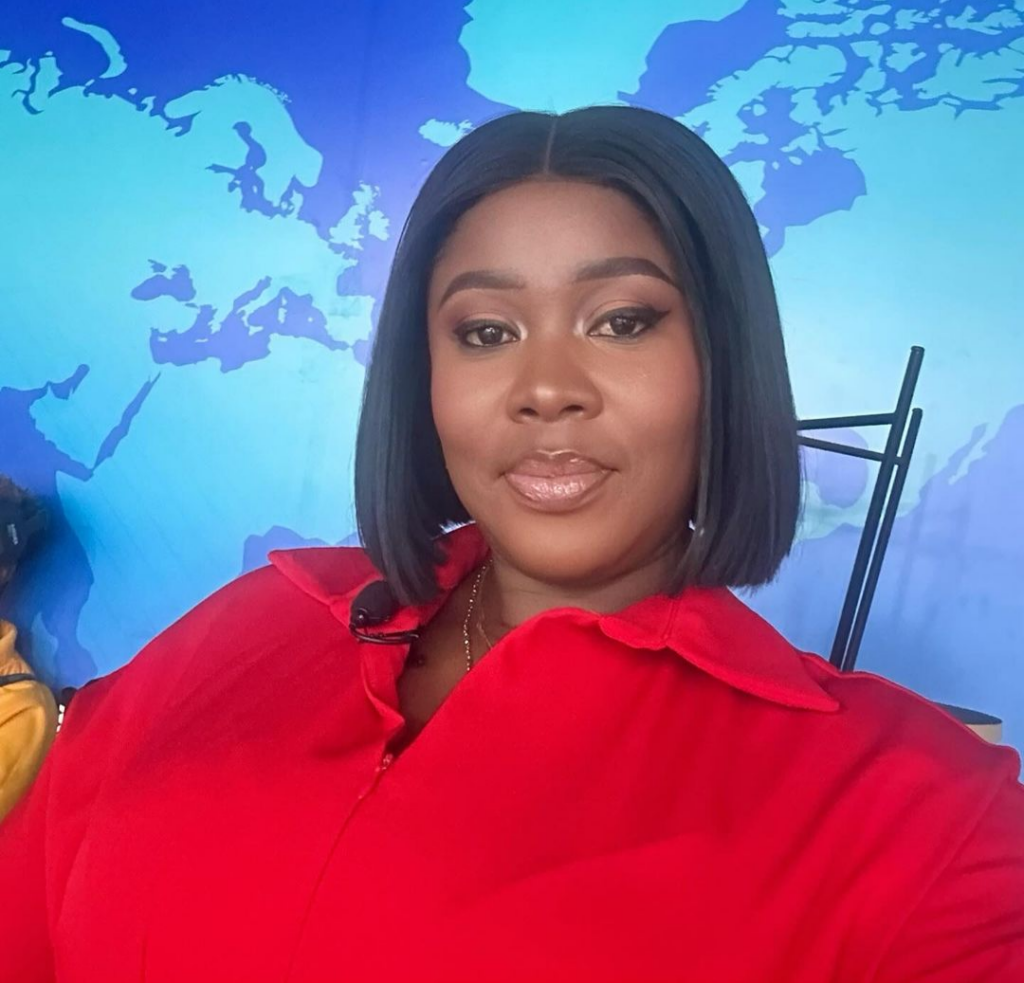
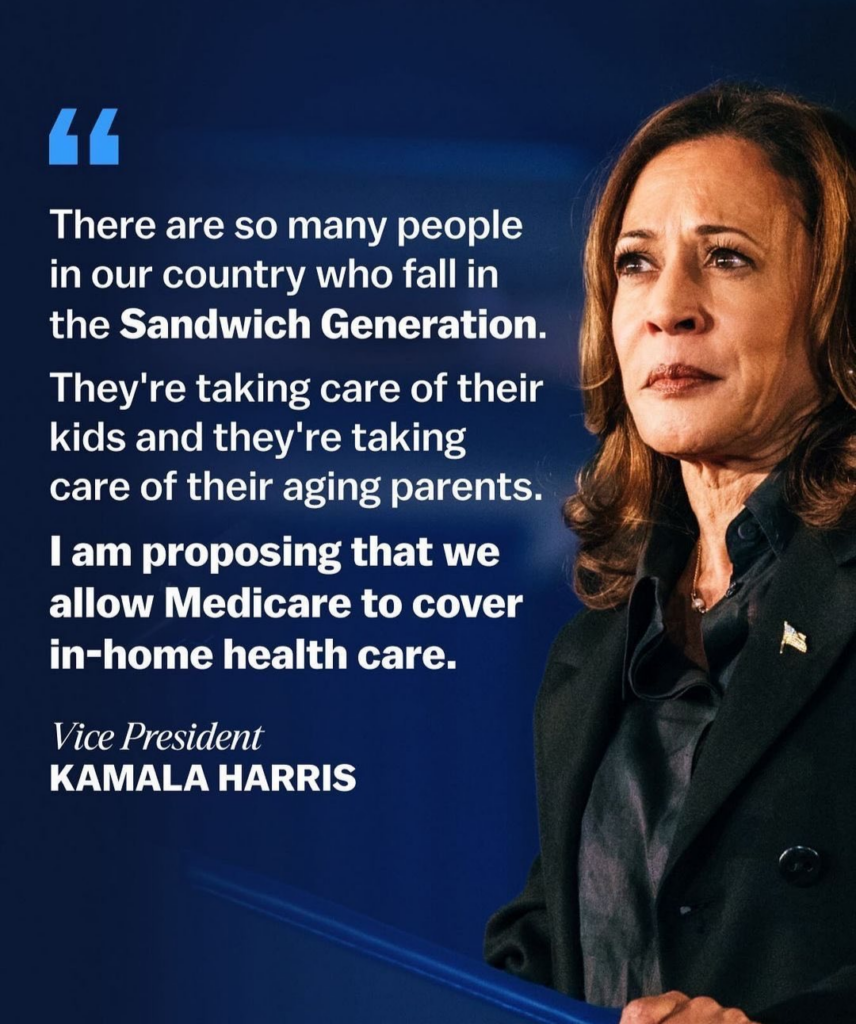
Frema Adunyame:
“Good morning, Vice President Harris. It’s a pleasure and an honor to speak with you today. Thank you for joining us on Assumpta Weekly Magazine’s special issue on justice, equality, and the pursuit of truth. I’d like to begin by asking if you’re familiar with Dr. Martin Luther King Jr., the iconic civil rights leader who courageously opposed deep-rooted prejudice and discrimination against Black women and the Black community. His legacy still resonates so
profoundly in our work for equality.”
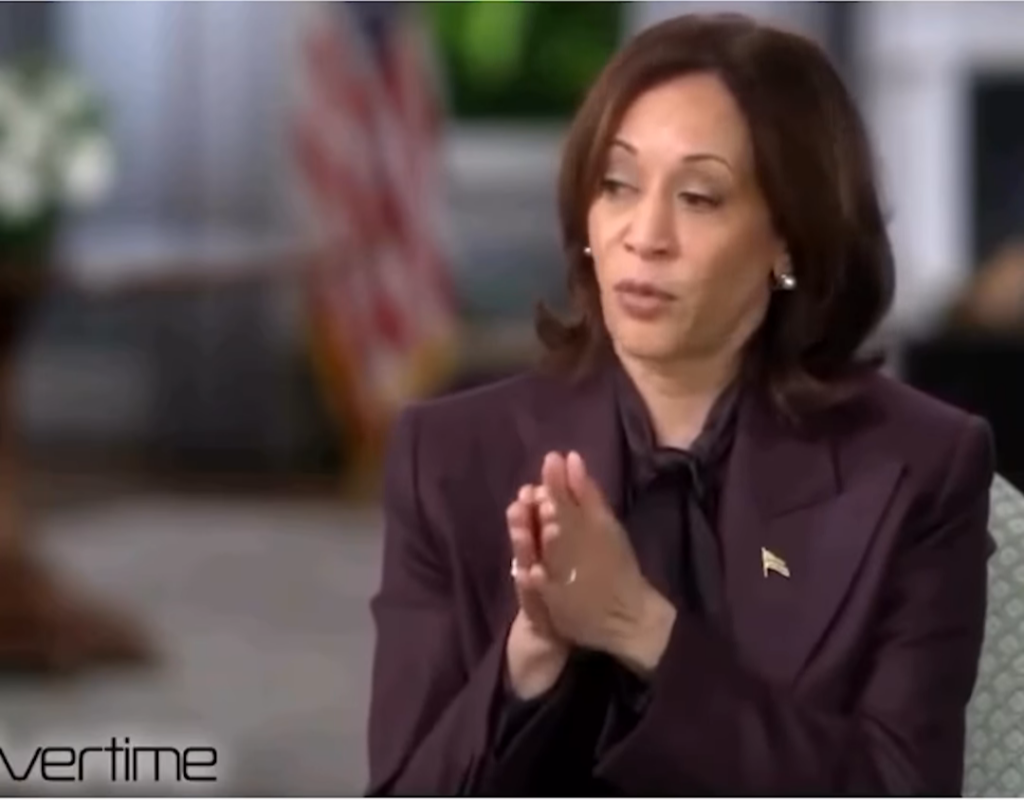
Kamala Harris:
“Good morning, Frema. Thank you for the warm introduction, and I’m grateful to be here. Yes, Dr. King is an inspiration to so many of us. His relentless fight against racial injustice, his dream of a society free of prejudice, and his commitment to nonviolence have left an indelible mark on our nation and on the world. His belief in the transformative power of justice continues to guide my work.”

Frema Adunyame:
“Thank you, Vice President Harris. You’ve dedicated much of your career to addressing injustice in America, and I know our readers are interested in the insights you share in your books. Your works—Smart on Crime, The Truths We Hold, and Superheroes Are Everywhere—provide not only a roadmap for reform but also a message of hope. Smart on Crime, for example, outlines your strategies for transforming the justice system, balancing punishment with prevention, and addressing root causes of crime such as poverty and education.”

Kamala Harris:
“I appreciate your words, Frema. In Smart on Crime, I focused on ways to make our communities safer by looking beyond traditional punitive measures. My approach has always been about being both tough and smart on crime. That means prioritizing solutions that
tackle poverty, education, and mental health—issues that are deeply intertwined with crime. And I wanted the book to reflect that real, lasting change in our justice system requires tackling these root causes, rather than just the symptoms.”
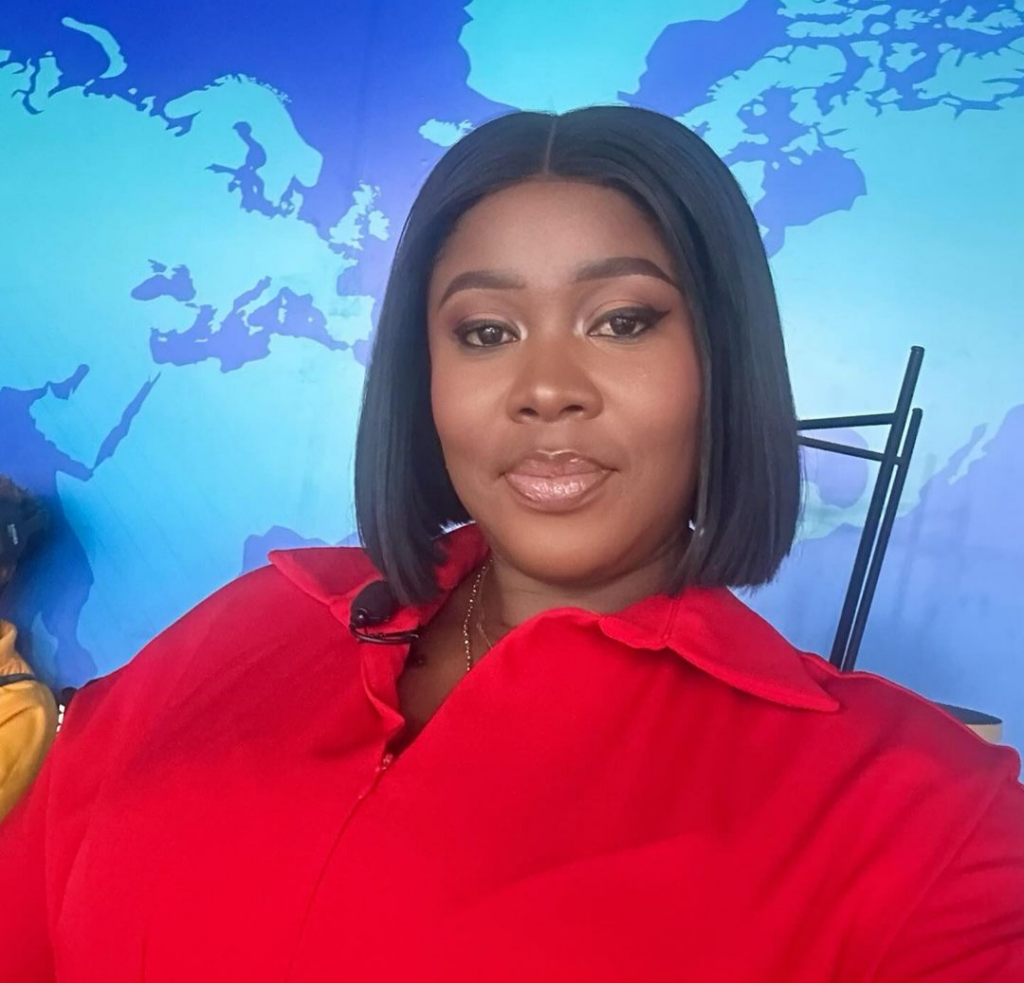
Frema Adunyame:
Your dedication to addressing these systemic issues is clear, and as a former prosecutor, you’ve had firsthand experience in reforming practices within the criminal justice system. I can see the influence of Dr. King’s legacy in your work. In The Truths We Hold, you delve deeper into your personal journey and your vision for the future of America. Could you tell us.a bit about what you hope readers take away from your story and your journey?”
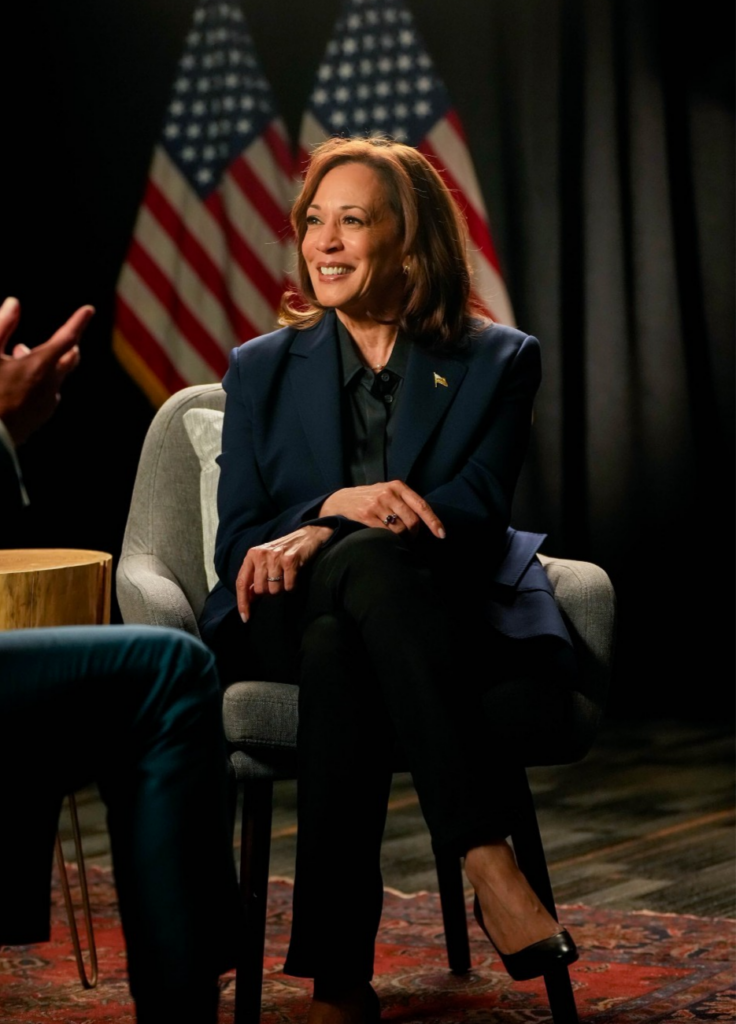
Kamala Harris:
“Of course. In The Truths We Hold, I wanted to share not only my journey but also my vision for an America that values fairness and compassion. I believe strongly that each of us has a role in shaping our country’s future—whether it’s advocating for equal opportunity,
healthcare, or justice. I hope that readers see that their voices matter and that positive change is possible, even in the face of deep-rooted challenges.”
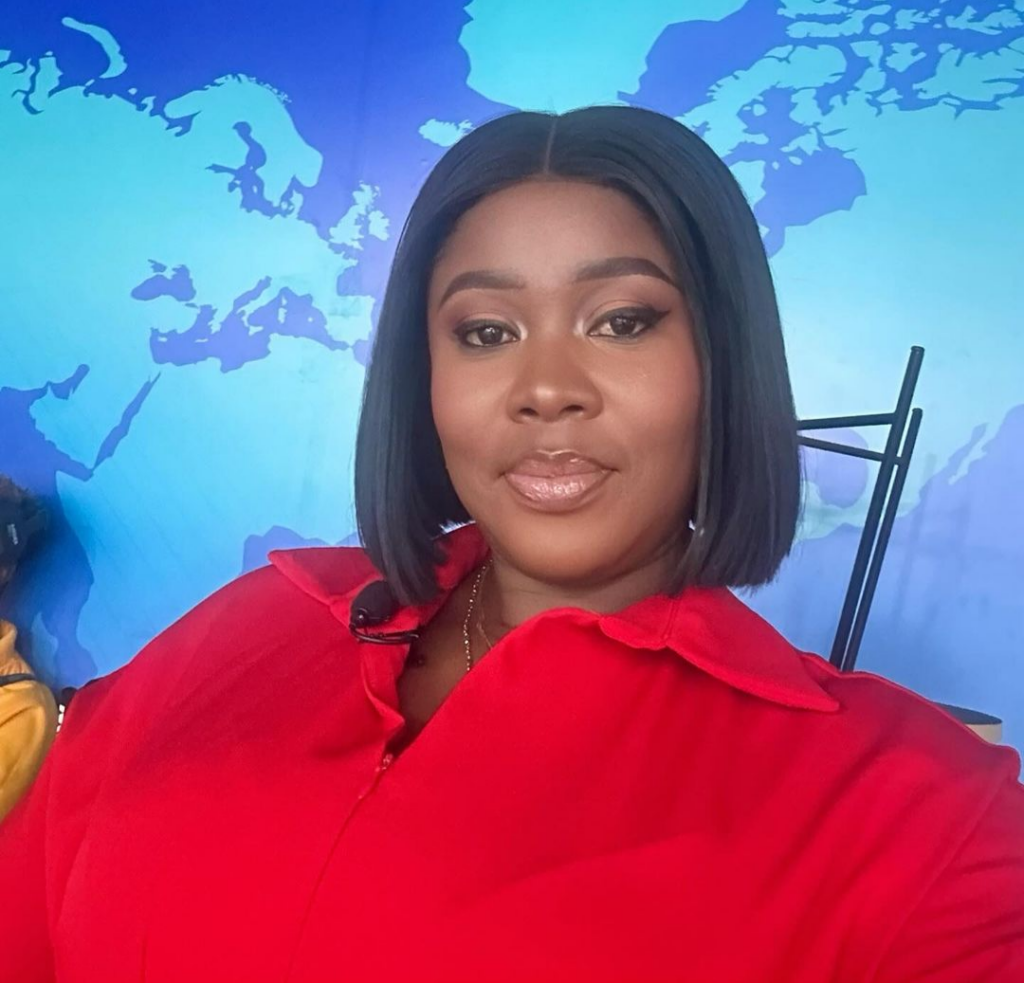
Frema Adunyame:
“Your message of empowerment is so inspiring, especially for our younger readers. I also admire Superheroes Are Everywhere, where you remind children that everyday
people—teachers, parents, and friends—can be superheroes. It’s such a beautiful way to uplift young readers and encourage them to find role models in their own lives.”
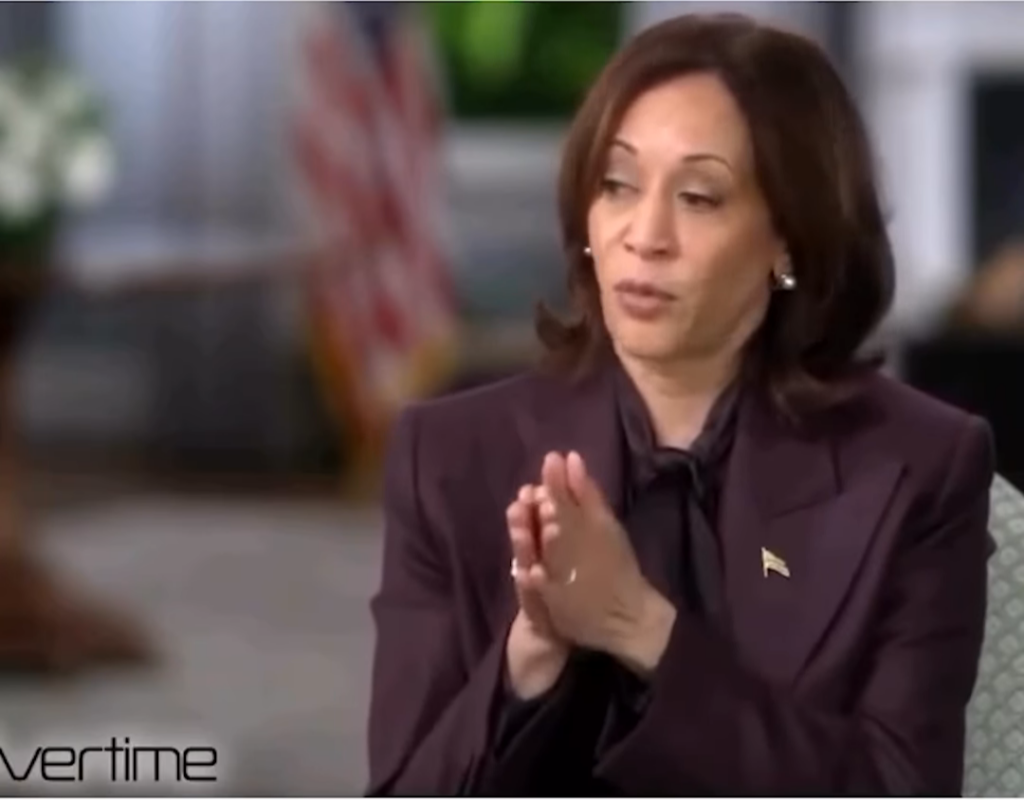
Kamala Harris:
“Thank you, Frema. Writing Superheroes Are Everywhere was truly a joy. I wanted children to see that heroes aren’t just in the pages of comic books or on television—they’re all around us daily. Whether it’s a teacher who goes the extra mile, a nurse working long hours, or a community leader standing up for what’s right, heroes are made by their compassion,courage, and dedication.
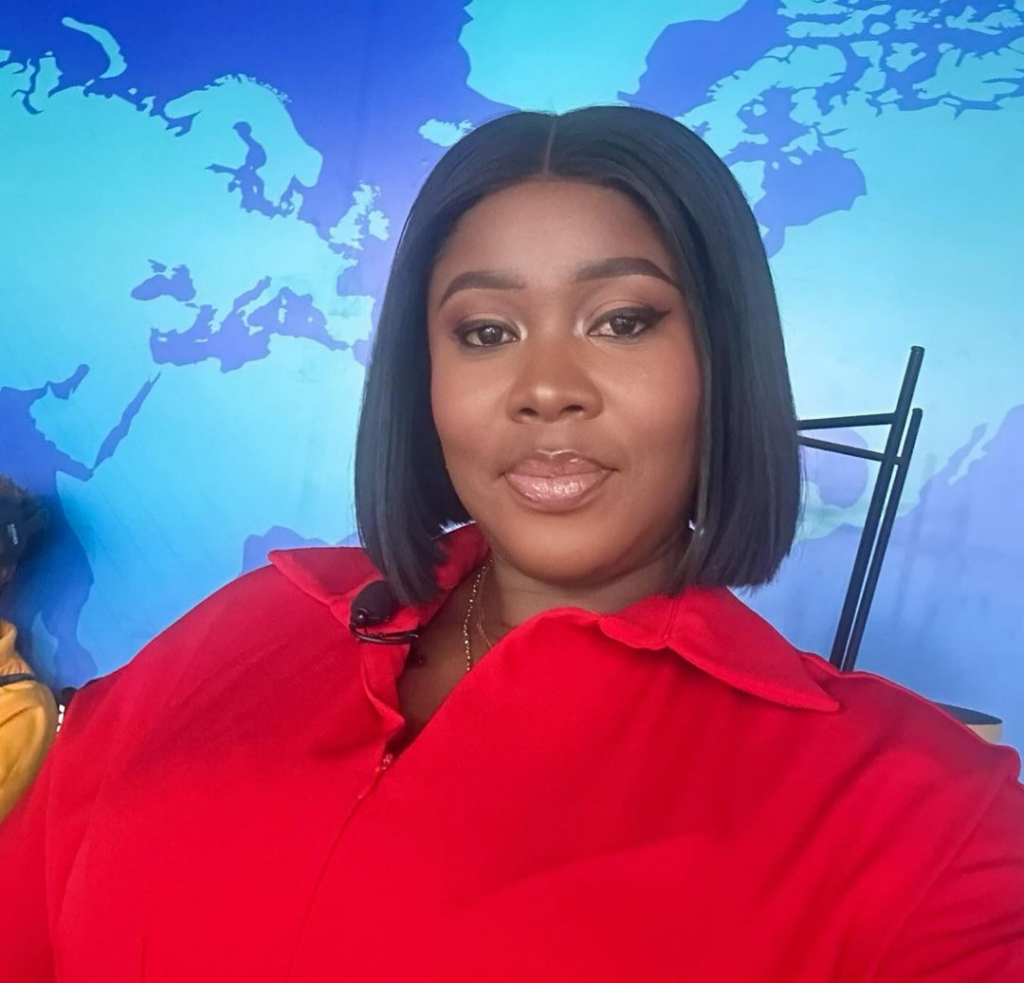
Frema Adunyame:
“Vice President Harris, I’d love to discuss a statement you made about supporting families in what’s known as the ‘Sandwich Generation’—those caring for their children
and their ageing parents.
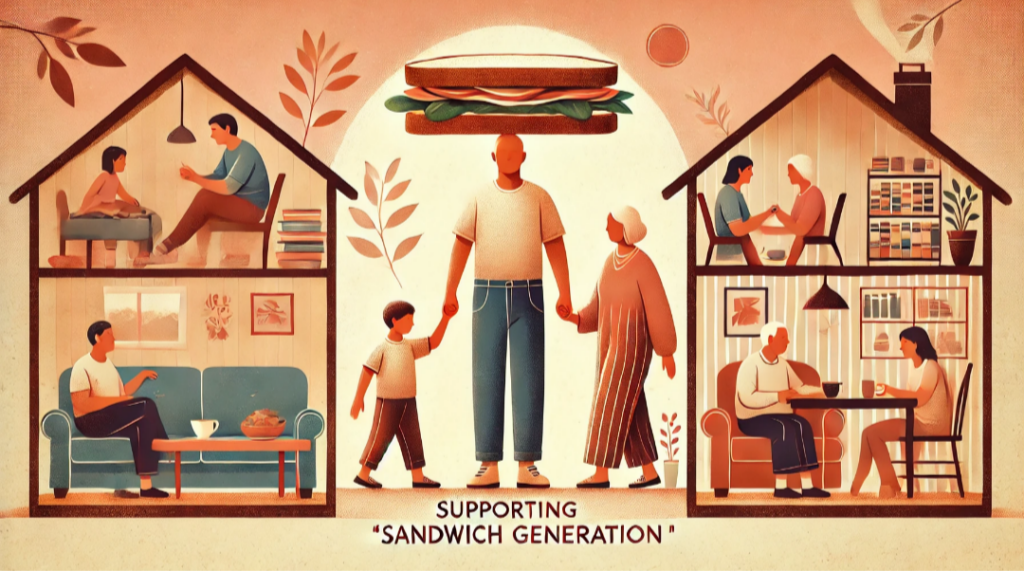
You’ve proposed allowing Medicare to cover in-home health care, a policy that resonates strongly with many people today. You’re showing a commitment to justice by advocating for changes that could profoundly affect families across the nation, especially within Black communities, who have often been left to navigate these challenges on their own. Could you share more about what motivated this proposal and how you see it impacting these communities?”
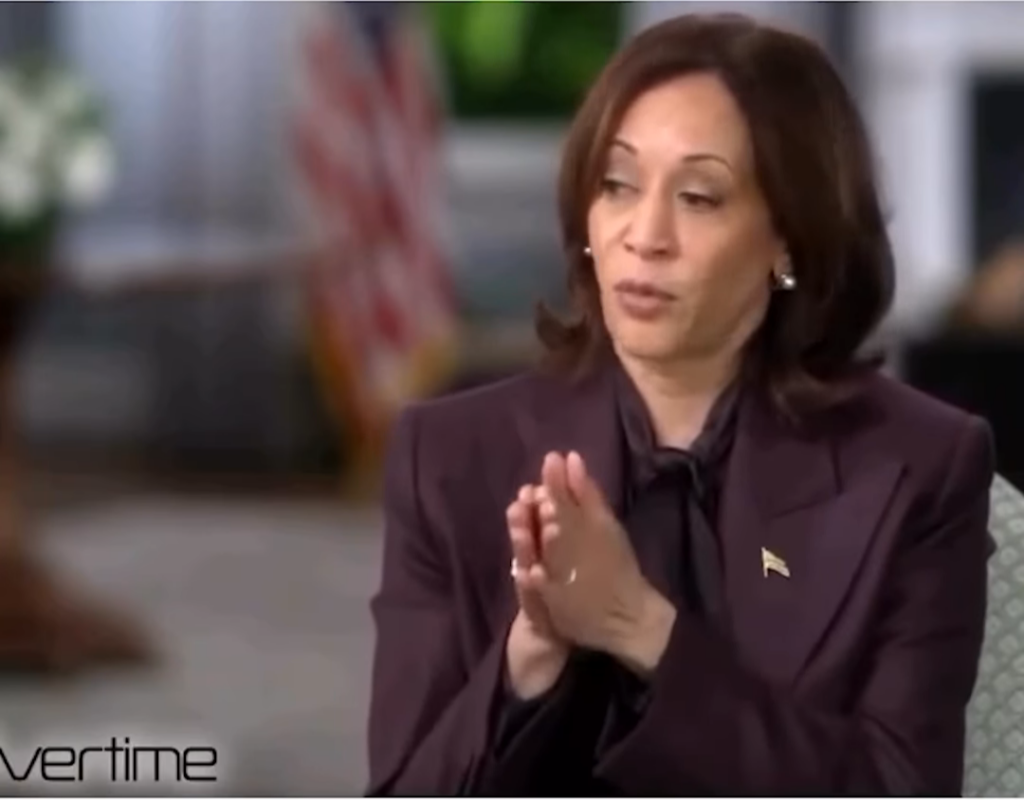
Kamala Harris:
“Thank you, Frema. My commitment to expanding Medicare to cover in-home care is rooted in a fundamental belief that everyone deserves dignity and support, especially when it comes to health care. Some so many families are stretched thin—both financially.and emotionally—as they try to care for ageing parents and young children at the same time. This burden has historically fallen more heavily on Black communities, where generations.have often lived together and supported each other despite having fewer resources.”
Frema Adunyame:
“That’s a powerful point, and it’s true that in many Black families, multigenerational support has always been a way of life. Yet, due to systemic barriers, it’s often Black families who are most in need of this type of health care support. How do you envision these Medicare
reforms bridging that gap?”
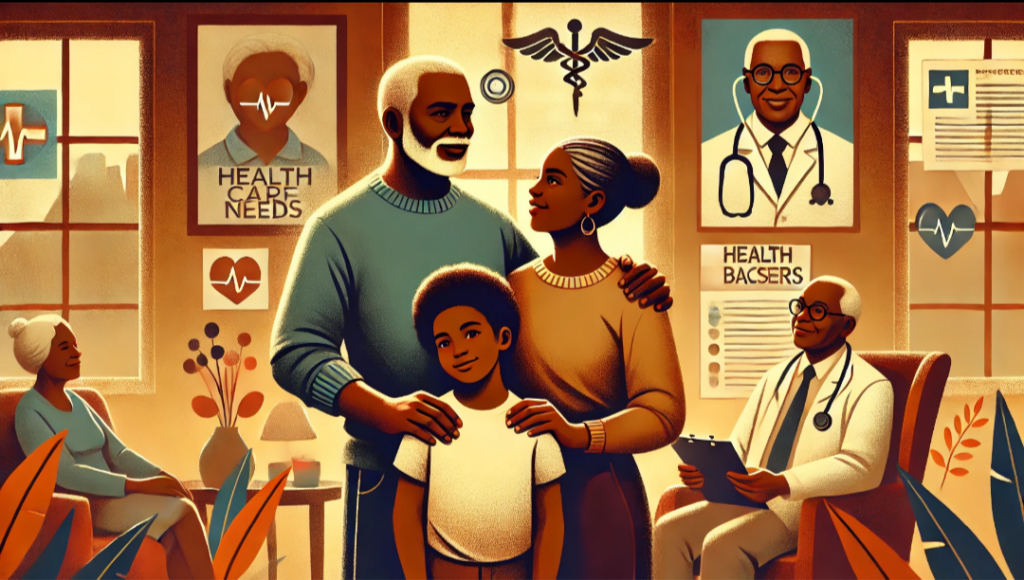
illustration representing multigenerational support within Black families, highlighting resilience and unity amidst challenges related to health care access.
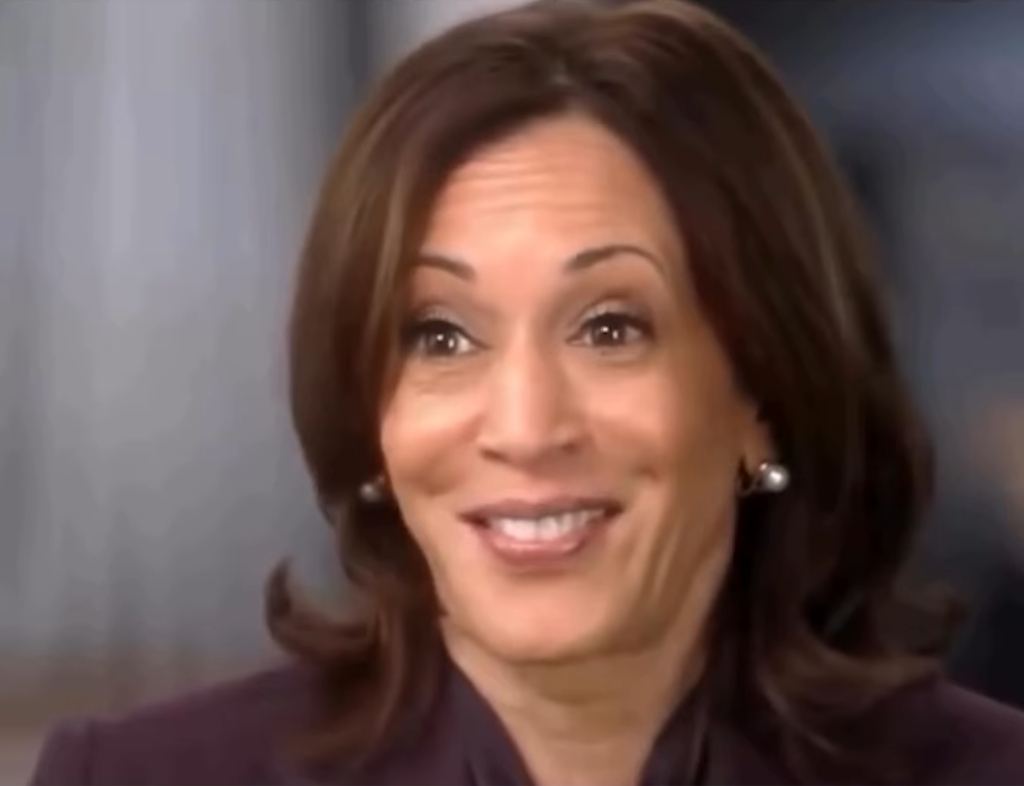
Kamala Harris:
“Frema. My goal is for Medicare to provide the resources that will allow families to take care of their loved ones at home, without facing financial ruin. When we make
in-home health care accessible, we’re offering people the opportunity to care for their parents and grandparents with the support they deserve.
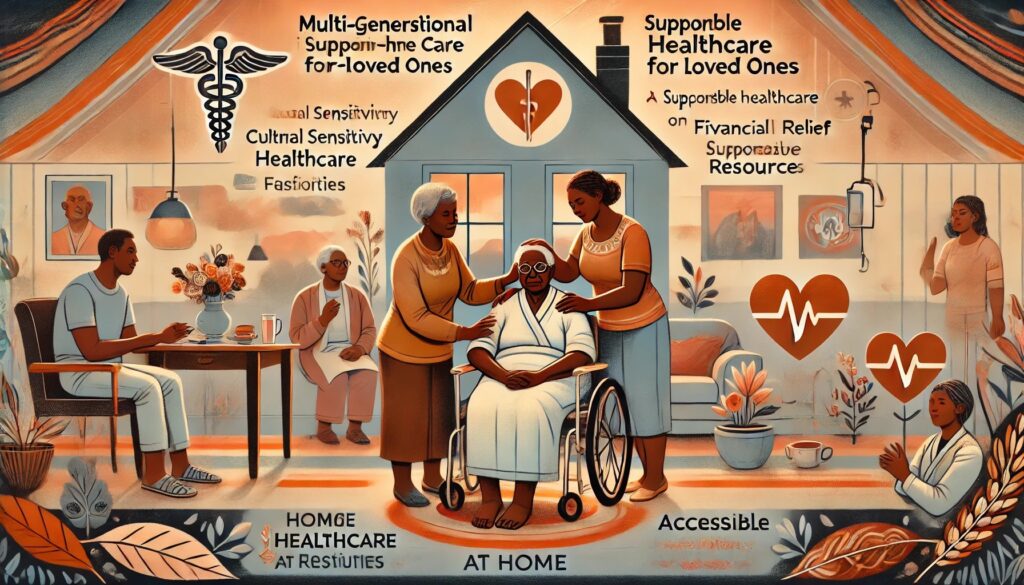
An illustration showing the goal of Medicare supporting families to provide in-home care, empowering them to care for loved ones in a way that respects cultural and family values.
This policy would reduce the strain on hospitals and healthcare facilities as well. For Black families, this means keeping loved ones out of institutional settings that may not always be sensitive to their cultural or personal needs. It means empowering these families to take control of their loved one’s care in a way that aligns with their values and traditions.”
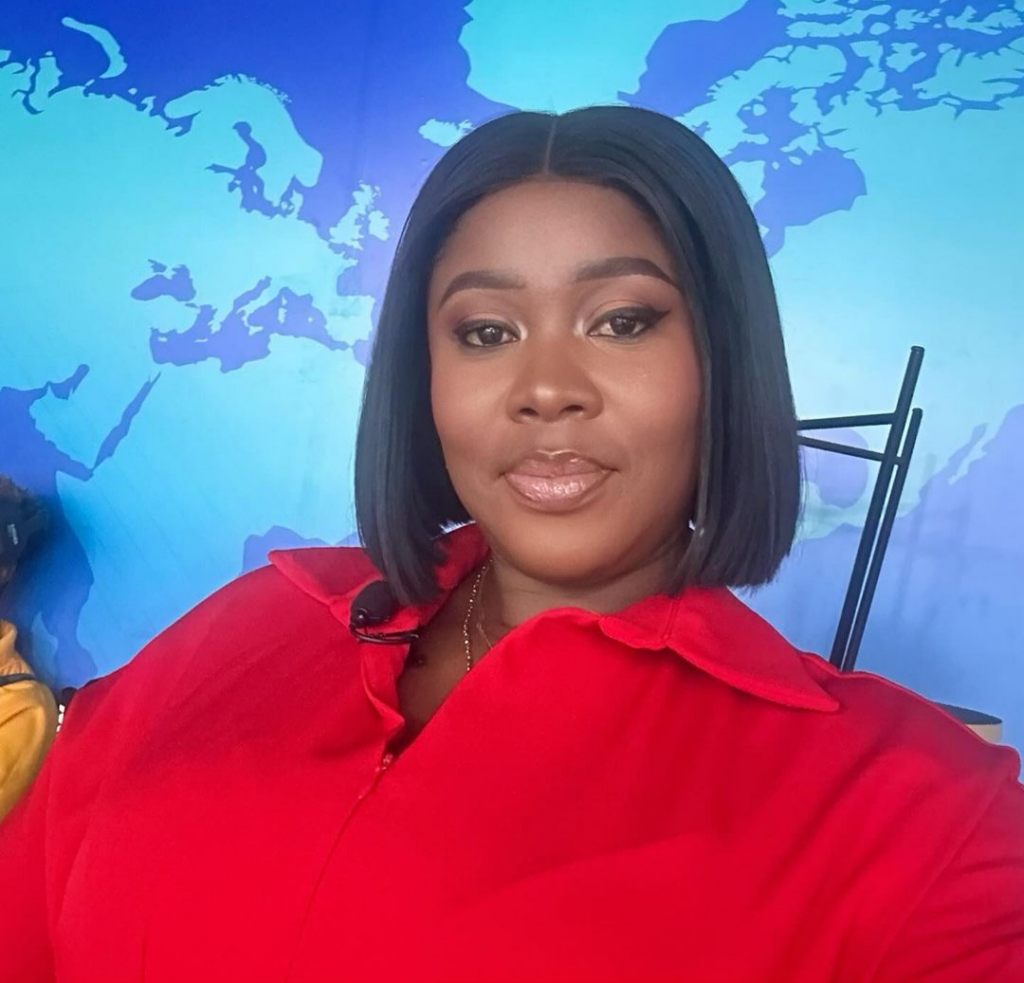
Frema Adunyame:
“There Is Only One Truth,” and that is: “The Cry of Justice That Echoes Through Our
History”. What is your thoughts on this?
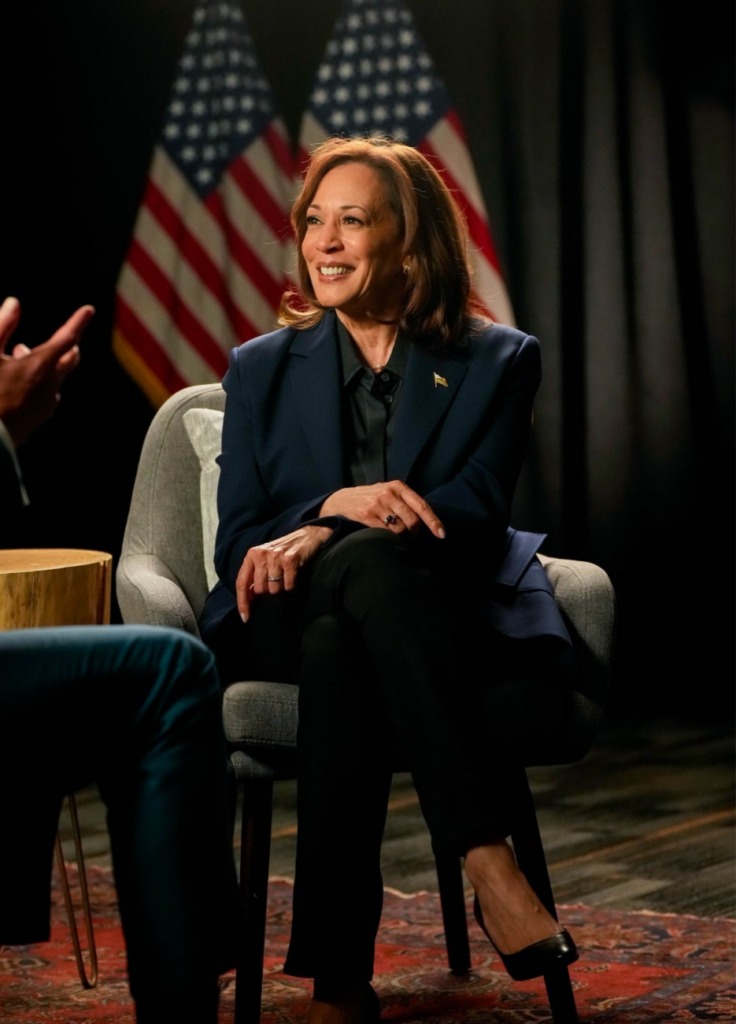
Vice President Harris,
You remind me of Martin Luther King Jr in so many ways. He refused to be overwhelmed by the sorrow, oppression, and indignity that Black people faced daily. With a courageous heart and unbreakable resolve, he dedicated his life to defending America and its ideals of equality.
Courage was his armour, and he held onto his mission,
fanning the flames of his will to achieve justice and uplift those suffering under the weight of systemic injustice.
I do feel I have the same courage, to break down the
walls of prejudice that still surround Black people”
Dr. King’s legacy is a powerful reminder of the work we’re called to do in pursuit of justice. I carry his words and example with me, understanding that true courage lies not only in confronting injustice but also in the commitment to persevere, even when progress seems distant. Yes, I do believe in that courage—and I feel I have to honour the path he and so many others paved by working to dismantle the prejudices and barriers that
remain.
Breaking down these walls requires a collective effort, one rooted in truth and solidarity. Every policy I champion and every reform I push forward, from Medicare to criminal justice, is done with a deep respect for those who came before me and those still fighting today. We all deserve a society where dignity and opportunity are not just ideals but realities for every person. Dr. King believed in that vision, and I do too. That is the truth we must all strive to uphold.”
Frema Adunyame:
“Thank you, Vice President Harris. Your words resonate deeply, and your commitment to justice gives hope to so many. It has been an honour discussing these important issues with you, and I know our readers will feel the same. Together, let us carry forward this cry for
justice that echoes through history, remembering that there truly is only one truth.”
“You’ve also been vocal about reforming policies that impact racial equity in healthcare. Your Medicare reforms could certainly have a transformative effect on these communities, elevating the standard of care for families who have historically been underserved. Do you
believe there’s one guiding principle behind all your reform initiatives?”
Kamala Harris:
“Yes, Frema. For me, there truly is only one truth: everyone has the right to live with dignity.and access to opportunity. In advocating for Medicare reforms, criminal justice reforms, or educational opportunities, my guiding principle is justice—justice that encompasses fairness,
access, and equality. That’s the vision I hold for the future of our nation.”

